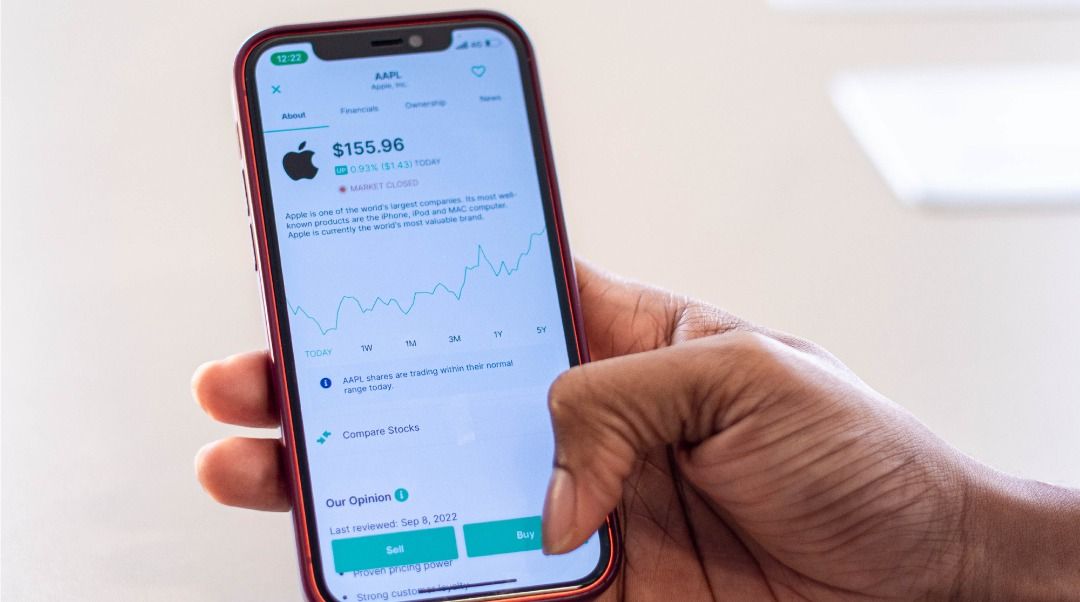Why African millennials and Gen Z invest in US stocks despite the bear market
Despite the downturn in the US economy, a 2022 report by Bamboo revealed why Nigerian retail investors have continued to invest in stocks in the bear market.

In January 2022, the United States stock market declined, recording its worst performance since 2008. According to reports, tech stocks and cryptocurrencies were particularly hit by this economic downturn which was mainly driven by aggressive interest rate hikes to curb inflation, recession fears, the Russia-Ukraine war and rising concerns over COVID cases in China.
At the end of 2022, the benchmark S&P 500—an abbreviation of Standard and Poor's 500, in the United States, a stock market index that tracks 500 publicly traded domestic companies—shed by 19.4% this year, marking a roughly $8 trillion decline in market capitalisation. As of December 30, 2022, the tech-heavy Nasdaq was down by 33.1%, while the Dow Jones Industrial Average has fallen by 8.9%.
Despite this bear market, a 2022 investment report by Nigerian fintech Bamboo revealed that Nigerian retail investors remained resilient in the face of lower stock prices. Bamboo is an online brokerage app that allows Africans to invest in US stocks such as Tesla and Apple, ETFs, mutual funds as well as fixed-income products.
“All Nigerian investors, irrespective of age, are bullish on tech stocks. Despite the downturn in the US stock market, Tesla and Apple remained the two most popular stocks by trade volumes this year [2022] across all age groups,” Richmond Bassey, Bamboo CEO and co-founder, told Benjamindada.com via email last month.
Millennials and Gen Z make up 85% of total trades on Bamboo, according to the report. However, Gen X has the largest average trade size at $466, more than 2.5 times that of Millennials. This is because Gen X has accrued more savings to invest, having worked long and typically commanding larger salaries than Millennials and Gen Z, the report states.
“Looking at stock values (in other words, the total investment amount in naira per stock), you start to see different risk behaviours among investors. Surprisingly, Gen Z has a similar risk appetite to Gen X and Boomers,” Bassey said. “They want to minimize downside risk by diversifying into less risky assets than stocks. This is surprising because normally young investors want to maximize their upside, taking more risks to make more money.”
In April 2020, Nathanael Disu, a financial market analyst and a GenZ retail investor, started investing in exchange-traded funds (ETFs) and Index Funds via Bamboo. Disu is one of those investors that was actively investing in 2022 despite the economic downturn. “Fractional investing helps me to be a long-term investor,” he said. Repeat depositors, like Disu, make up 85% of deposits in Nigeria showing confidence among users in trading US stocks.
Disu’s comment reflects the findings in the Bamboo study on the risk appetite of Nigerian retail investors. “Despite being new to investing, Nigerian investors aren’t panic selling. Rather they are investing for the long term,” Bassey said.

According to the report, ETFs appeared in the top three stocks for the first time in 1H22. In an all-time first for investors, the Vanguard 500 Index Fund ETF (VOO) was Gen Z’s third most popular security in value terms, but fourth most popular in volume, indicating that although Gen Z wants to diversify their portfolios, they are constrained in the number of shares they can buy due to the security’s high price. Gen X follows a similar pattern.
According to Bassey, Millennial and Gen Z investors are motivated to grow their savings against a weak naira, which is driving their investment habits.
“Millennials and Gen Z want to save and invest for the future - there’s zero doubt about that. But, their ability to invest is constrained by 20% inflation and a weak naira which has fallen 37% against the dollar this year [2022]. When we looked at investing levels in the first half of 2022, we had an influx of new users, but the average deposit sizes were generally small. The average Bamboo user starts out investing roughly $156. While more Nigerians want to invest and hedge against inflation, they are not able to invest large amounts — and that’s fine. From a financial planning perspective, it’s better to start investing now and let investments grow instead of waiting for the economy to rebound,” he said.
Related Article: Seven ways to beat inflation in Nigeria
While over 71% of Bamboo users are new to investing, they are bullish on growing their investing knowledge. In 2022, 424 out of 1,500 applicants were admitted to Bamboo Academy—a four-week immersive investing course for beginners—, and the company’s stock market course has garnered over 1.6 million views.
To expand its offering to other parts of the continent outside Nigeria, Bamboo expanded into Ghana in September 2022 in partnership with a licensed Ghanaian firm, 10th Capital Investments, to “bring Ghanaians the opportunity to invest in the U.S. and eventually the local stock market”. Through Bamboo’s US digital investing partner, DriveWealth LLC, all Bamboo accounts are insured for up to $500,000 via the US Securities Investor Protection Corporation (SIPC).






